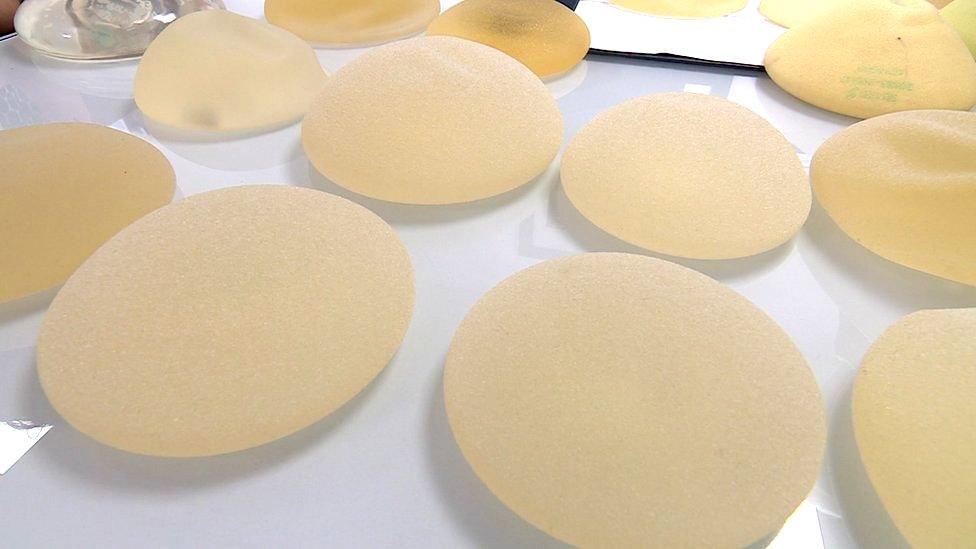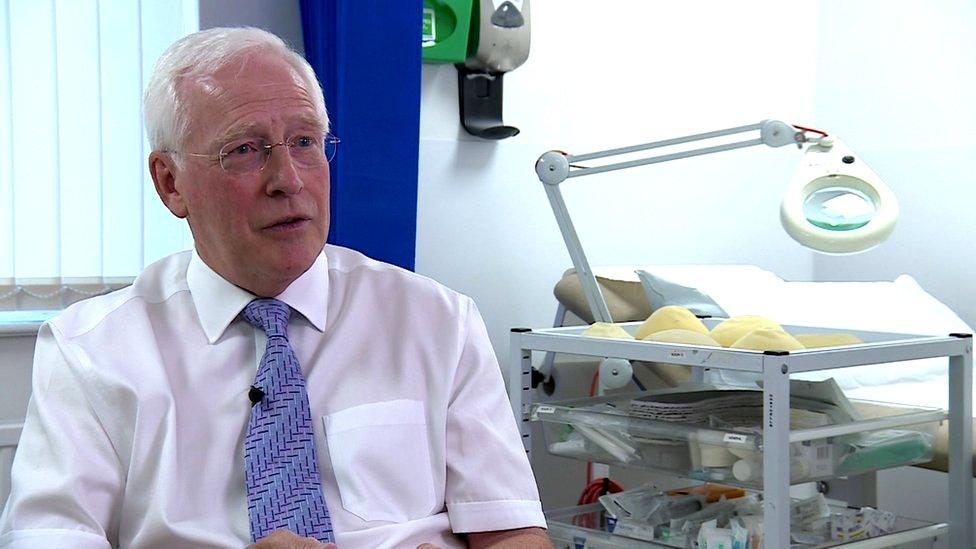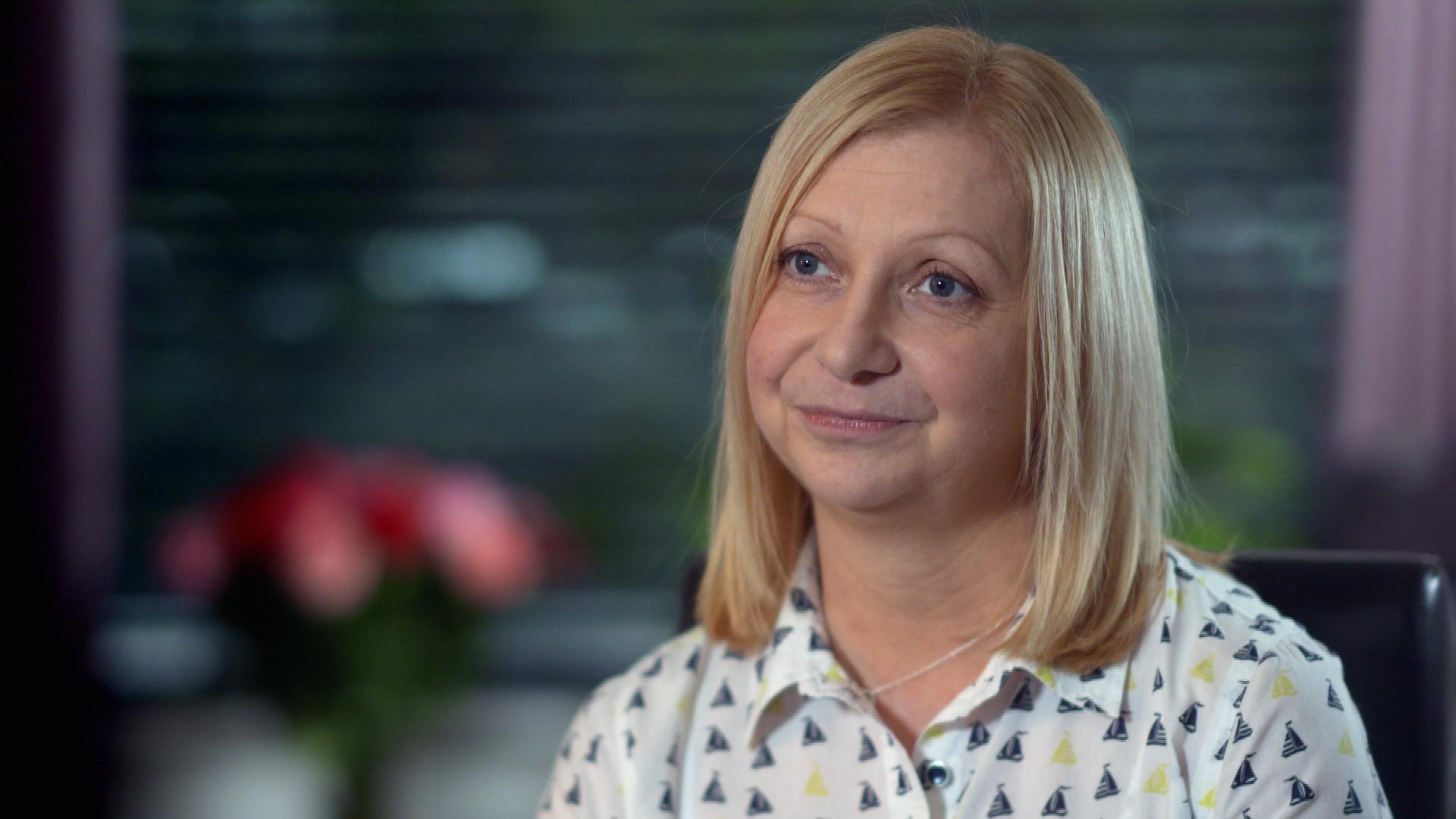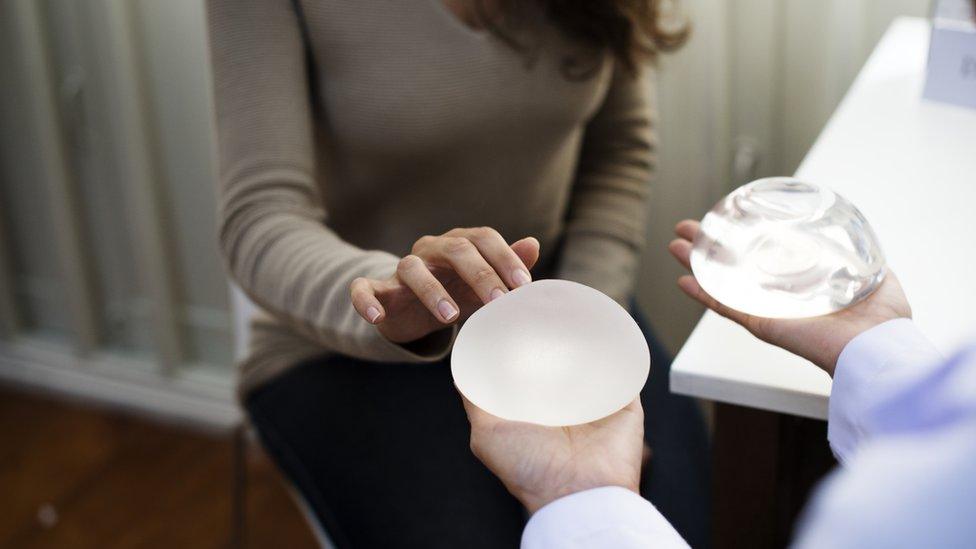Women take legal action over breast implant cancer link
- Published

Linzy developed a rare lymphoma 13 years after breast implant surgery
Twenty UK women are taking legal action after developing a rare form of cancer linked to their breast implants.
More than 50 women have been diagnosed with the same condition in the UK, and hundreds more worldwide.
A top surgeon said there were gaps in implant information and people were almost being "used as guinea pigs".
One manufacturer has issued a worldwide recall of some textured implants, which have been linked to most cases of breast implant-associated lymphoma., external
The MHRA, the Medicines and Healthcare products Regulatory Agency, which regulates medical devices in the UK, is currently collecting data on women affected by breast implant associated-anaplastic large cell lymphoma (BIA-ALCL), external.
It has assessed the risk to be one in every 24,000 implants sold (looking at both textured and other types of breast implant).
Tens of thousands of breast implant surgeries are thought to take place each year in the UK, mostly in private clinics.
'I was worried I was going to die'
Linzy Bromfield, 50, is one of the women who is taking legal action - in her case against the manufacturer.
She paid privately for breast augmentation in 2005 after having two children, and went from a B to a D cup bra size.
Linzy was very satisfied with her implants but, 13 years later in 2016, she noticed her right breast had become so swollen she was unable to wear her bra.
She had fluid drained from the breast in an NHS hospital and was later diagnosed with implant-associated lymphoma.
"I cried, really cried. I was angry and hurt. I couldn't really take it in at first. I was worried I was going to die.
"I think when you hear that word 'cancer' you think, am I going to die?"
Linzy had both of her implants removed and has been free of disease since. However, other women have needed further treatment, including chemotherapy.
What is implant-associated lymphoma?
It is a cancer of the immune system, not a type of breast cancer, and it's a rare sub-type of T-cell non-Hodgkin lymphoma.
Mr Nigel Mercer, a plastic surgeon and chair of an advisory group of surgeons monitoring cases of the cancer for the MHRA, said: "The same type of implant has been around for 30 years but we only started seeing this as a disease recently, so it looks like it's a genuinely new disease."
Typically, the cancer cells are found near the scar tissue and fluid near the implant but, in rare cases, they can spread.

Scientists believe the lymphoma could be a reaction to the textured surface of the implant
If caught early, the lymphoma can be cured by removing the implant and the capsule surrounding it.
Cases have occurred between three and 14 years after surgery.
Doctors are not sure how BIA-ALCL is caused - but scientists believe it could be a reaction to the textured surface of the implant or a bacterial infection.
What do surgeons say?
Linzy's surgeon, Prof James Frame, who works in Chelmsford, Essex, says he was shocked by her case, which is the only one he has seen in the 30,000 or more breast surgeries he has performed.
He says there is not enough information available to surgeons about the potential risks associated with different breast implants.
"There needs to be a more robust information package to those delivering the service. [UK research around this] is dreadful," he said.

Prof Frame was Linzy's surgeon
Prof Frame believes insurance packages could be made available to patients opting for private surgery to ensure they receive ongoing care.
Mr Mercer says there are many unknowns when it comes to breast implants and doctors have a moral duty to tell that to patients.
He said women in the UK were not "appropriately warned that breast implants are not for life, necessarily".
"There are unknowns with any implant, but it does mean we are using our entire population as human guinea pigs, almost."
Mr Mercer and Prof Frame are both calling for international collaboration between worldwide clinicians to share breast implant data.
What is the advice to women?
The MHRA issued a joint statement with several of the UK's leading surgeons' associations in July. It said it is "essential" that surgeons make all patients considering a breast implant for reconstructive or cosmetic purposes fully aware of the potential risks.
The organisation also says breast implants undergo a rigorous risk-based approval process before they can be used by the wider population.
Women who have textured implants may not need to have them removed, but they should consult their clinician if they have any concerns or symptoms.
Removing implants unnecessarily can carry a risk of further surgical complications.
What next?
When Linzy had her implants fitted in 2005, BIA-ALCL was not widely known about and neither surgeons nor patients had been made aware of the risks.
Linzy says she may well have gone ahead with the surgery anyway, but thinks some women may be put off in the future.
The women are taking legal action against surgeons and manufacturers. They want recovery for the costs of the implants and their removal, and compensation for personal injury, distress and any potential financial loss they suffered. Letters Before Action are being sent to relevant parties this month.
Their lawyer Zahra Nanji, from Leigh Day, says: "I really do believe strongly that the manufacturers, producers and distributors of these implants need to take responsibility."
Manufacturer Allergan said patient safety was a priority and it would support informative labelling "to promote and advance the safest use of breast implant products".
"We continue to invest in and support work to further understanding and increasing awareness of BIA-ALCL," the company said.
It has issued a voluntary worldwide recall of Biocell saline-filled and silicone-filled textured breast implants and tissue expanders.

- Published26 November 2018

- Published5 April 2019
